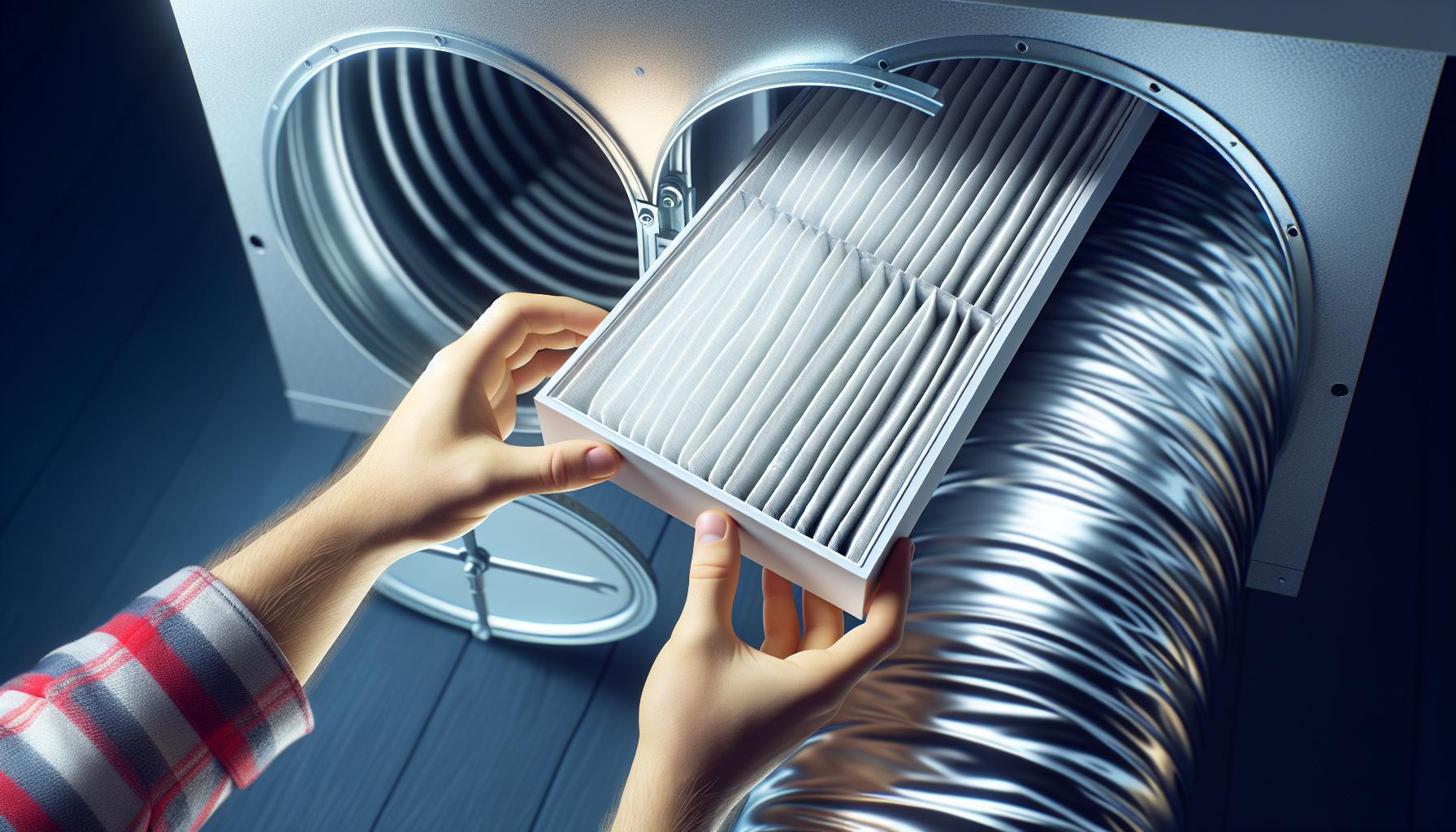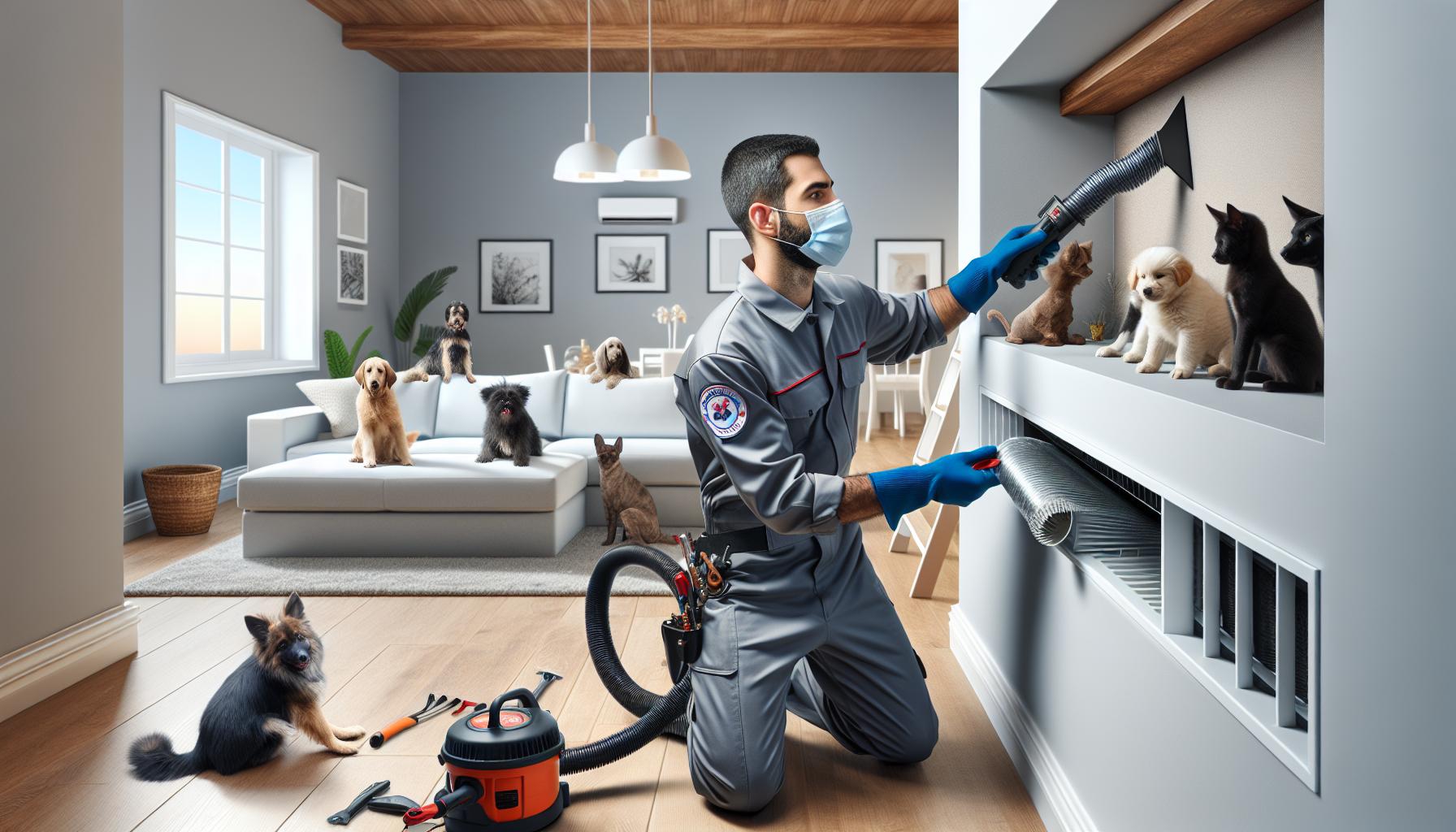Dust billowing from your vents can be more than just a nuisance; it can compromise your indoor air quality and exacerbate allergies. If you’ve ever wondered why your home seems perpetually dusty even though your best cleaning efforts, the culprit might be lurking within your HVAC system. This article delves into practical strategies to keep dust from escaping your vents, ensuring a cleaner, healthier living environment.
You’ll discover how regular maintenance, proper filtration, and even simple DIY solutions can make a significant difference. By understanding the root causes and implementing effective measures, you can prevent dust from circulating through your home and breathe easier. Ready to tackle the dust problem head-on? Let’s explore the best practices to keep your vents—and your air—spotless.
Understanding The Problem
Dust coming out of vents can significantly impact indoor air quality. If left unchecked, it can worsen allergies and other respiratory issues. This problem often stems from the HVAC system itself, which can circulate dust and debris if not properly maintained.
Key Causes
- Dirty Air Filters: When air filters become clogged, they can’t trap dust effectively, allowing particles to pass through the vents.
- Leaky Ductwork: Gaps or holes in the ductwork let dust enter the system, which then gets distributed throughout your home.
- Poor Ventilation Maintenance: Dust and debris accumulate in vents and ducts over time, exacerbating the problem if regular cleaning is neglected.
Real-World Examples
In homes with pets, dust accumulation is often higher due to pet dander. For instance, houses with multiple pets may require more frequent air filter changes. Similarly, older homes might have ductwork that’s more prone to leaks, necessitating more diligent inspection and sealing.
Understanding these issues is the first step in addressing them. By recognising the causes, you can carry out effective strategies to keep your air clean and healthy.
Common Causes Of Dust In Vents

Dust escaping from vents often stems from a few common issues. Addressing these can significantly improve your indoor air quality.
Poor Filtration System
Changing air filters regularly is essential to prevent dust buildup. Ideally, replace air filters every three months, or more frequently if you have children and pets. Using high-efficiency particulate air (HEPA) filters can significantly reduce the amount of dust circulating through your home.
Leaky Ductwork
Leaky ducts can pull in dust and debris from areas like attics, crawl spaces, or basements. Sealing these gaps with duct mastic or foil tape is crucial to prevent dust from entering the ventilation system. Properly sealed ducts ensure cleaner air and more efficient HVAC operation.
Dirty Air Filters
Dirty air filters obstruct airflow and fail to trap dust effectively. Regularly inspect and clean or replace your filters to maintain optimal air quality. If you notice an increase in dust around your vents, check the filters first. Cleaner filters mean less dust escaping into your living spaces.
Effective Solutions For Dust Control
To effectively control dust from your vents, consider these strategies. They help maintain a clean living environment and improve indoor air quality.
Upgrade Your Air Filters
Replace air filters every three months, or more often with pets or children. Use HEPA filters to trap dust and particles more efficiently.
Regular Duct Cleaning
Hire a professional to inspect and clean your ductwork. Accumulated dust and debris in hidden areas can circulate through your vents.
Sealing Duct Leaks
Ensure your ducts are sealed properly. Leaky ducts can pull in dust and debris, spreading it throughout your home.
Additional Preventative Measures
Implementing additional measures can further reduce the amount of dust coming out of your vents, enhancing indoor air quality.
Use Air Purifiers
Air purifiers can significantly reduce airborne particles. Place them in commonly used rooms to capture dust before it reaches your vents. Devices with HEPA filters are particularly effective.
Maintain HVAC System Regularly
Regular HVAC maintenance prevents dust accumulation. Schedule professional inspections and cleanings at least once a year. This ensures your system runs efficiently and reduces dust circulation.
Benefits Of Dust-Free Vents
Dust-free vents offer several significant benefits for your home and health. Cleaner vents enhance indoor air quality, reducing allergens and respiratory issues. Dust particles can trigger asthma and allergies, especially in children and the elderly. By keeping vents free of dust, you minimise these health risks.
Efficient HVAC systems are another advantage. Dust accumulation in vents can obstruct airflow, forcing the system to work harder. This increases energy consumption and utility bills. Clean vents ensure that your HVAC system operates efficiently, saving you money and reducing environmental impact.
Maintaining dust-free vents also preserves your home’s cleanliness. Dust exiting vents settles on furniture, floors, and other surfaces, necessitating frequent cleaning. With clean vents, you spend less time on housework and enjoy a tidier living environment.
Increased lifespan of your HVAC system is an additional benefit. Dust and debris can wear down the system’s components, leading to costly repairs or replacements. Regularly cleaning and maintaining vents helps extend the life of your HVAC system, offering long-term savings and reliability.
Conclusion
Keeping dust from coming out of your vents is essential for a healthier home environment. By addressing key issues like dirty air filters leaky ductwork and poor ventilation maintenance you can significantly reduce dust circulation. Regularly changing air filters using high-efficiency particulate air (HEPA) filters and sealing duct leaks are effective strategies to maintain cleaner air.
Also professional duct cleaning and regular HVAC maintenance are crucial steps in ensuring your system operates efficiently and dust-free. Consider using air purifiers with HEPA filters in high-use areas to capture airborne dust before it reaches your vents. Eventually these proactive measures will improve indoor air quality reduce allergens and enhance the longevity and efficiency of your HVAC system. Take action today to enjoy a cleaner and healthier home.
